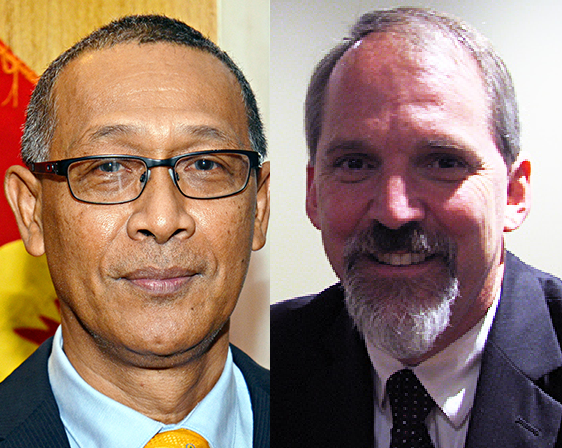Australian Exploits in Papua New Guinea's Vulnerable Economy
by David Lepi
PORT MORESBY. Back in 1997, Papua New Guinea's currency, the kina, plummeted nearly 50% against the US and Australian dollars, with interest rates soaring above 20%. The nation's economic struggles echoed today's downturn with kina at US38c and similarly low foreign exchange reserves.
Amid this financial turmoil, the government's chief economic adviser, Dr. Pirouz Hamidian Rad, an Australian-based Iranian and former World Bank economist, proposed a controversial fix. He suggested that PNG solicit a $US1.8 billion loan from Taiwan in exchange for diplomatic recognition—despite PNG's commitment to China's One China Policy. Dr. Rad's guidance appeared self-serving, potentially aiding in securing his $3 million salary over two years.
However, this strategy was short-lived. In July 1999, with the inauguration of Prime Minister Sir Mekere Morauta, PNG reaffirmed its One China policy, severed ties with Taiwan, and dismissed Dr. Rad.
Another Australian, Glen Blake, closely associated with the Somare political family, leveraged his connections to become Managing Director of the Independent Public Business Corporation (IPBC). Under the guise of mentoring Auther Somare, the then Minister for Public Enterprise with limited education, Blake steered decisions that benefitted himself, including the contentious IPIC deal. This deal involved leveraging PNG's shares in Oil Search Ltd to fund the government's stake in the PNG LNG project, a move rumored to involve kickbacks from Middle Eastern partners.
Blake even orchestrated the relocation of IPBC’s operations to Brisbane, suggesting a further divergence from PNG's interests.
Sir Mekere Morauta, tasked with reforming state enterprises during the O'Neill-Namah administration, attempted to rectify these actions, aiming to restore economic stability and growth to PNG.
In a similar vein, Paul Flanagan, initially arriving in PNG as an Australian Treasury officer, was later implicated in accusations of espionage in 2016, leading to his dismissal from the Treasury advisory team. He then joined the Pacific Public Policy School at the Australian National University, a move that seemed to validate suspicions of his earlier intentions.
Under Treasurer Ian Ling Stuckey's term beginning in 2019, Flanagan secured a lucrative, though undisclosed, agreement to serve as the principal economic advisor. His tenure has been controversial, marked by extensive travel with Stuckey and key decisions leading to PNG's economic distress and dependence on the IMF. Flanagan is also linked to the contentious ousting of Bank of PNG Governors Loi Bakani and Benny Popoitai.
The profits from his dealings, funneled through his firms Indo-Pacific Public Policy and Economics and Kumul Advisory, are undisclosed but presumed substantial by observers. His recent property acquisition in Canberra and business ventures, including the establishment of Paradisaea Pisin Ltd with his wife, suggest significant personal financial gains.
As Flanagan's influence wanes with the potential fall of his political ally, Treasurer Ling Stuckey, his recommendations for a Supplementary Budget in October, ahead of the formal budget discussions for 2024, highlight the urgency of correcting the spendthrift policies that included his own exorbitant fees.








Comments
Post a Comment
Please free to leave comments.